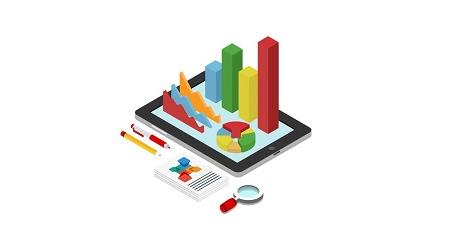If you’re a regular Target customer or a large retailer with a sophisticated inventory management and point-of-sale system to predict future customer needs, you’ve likely been given a Guest ID, usually a number tied to your credit card and your name, which will record your details on everything you have bought in their stores and let these retailers know about the broader consumer trends.
Tracking Customer Purchases
One of the things that Target noticed when it began tracking data and shopping behavior electronically was that women who signed up for baby showers – that is, women who announced their pregnancy – tended to consume large amounts of fragrance-free lotions starting from the beginning of your second trimester of pregnancy.
Presumably this reflected something like an increased sensitivity to smell, but the reason is irrelevant to this discussion. It is important that the data correlation gave Target an idea for marketing. The traditional practice was for a retailer to notice that a woman was pregnant and then track her purchases.
Target statisticians used their computers and tried to reverse this practice when analyzing the data. Company officials asked if they could identify pregnant customers based on their purchases rather than their looks or what they said – And they could. The analysis identified about 25 products that predicted pregnancy.
The New York Times noted, “Taken together, these 25 products became the basis for statisticians to assign a pregnancy prediction value to each buyer and to accurately predict when the date is likely within a very narrow window when each shopper’s due date was likely to be.”
Data to Predict the Future?
In other words, Target could tell that a woman was likely pregnant and could even predict with some accuracy when she would be born, say, in the first two weeks of September.
With this information, Target issued coupons linked to a customer’s likelihood of pregnancy and her likely stage of pregnancy. Of course, not all customers had publicly announced or even disclosed their pregnancy, but it seemed like a great strategy from a marketing perspective. For many customers, such unsolicited findings were intrusive.
An enterprising New York Times report on how business data brokers use big data analytics to sell products found that the program prompted an angry and clueless father to break into a Target store and berate employees for giving his daughter coupons Send for baby clothes and cribs. It turned out that her daughter was pregnant, she just hadn’t told her father about it. Because Target’s predictive analytics were found to be too creepy, the retailer made it less accurate. So, today, in an email with vouchers for baby clothes, you can also find it combined with a sale for TVs.
Data Collection or Psychic Powers?
This type of predictive analytics is becoming an essential part of targeted advertising. Think what the digital marketing company Quantcast can do with data. Let’s say you’ve watched three feng shui videos in the past 24 hours, read 12 articles about the health benefits of kale in the past week, and spent 9 hours in the past 3 weeks looking at the hotspots of Portland’s social life view all of the information that is quietly collected and recorded by your mobile phone.
By mixing this seemingly random container of information with other data, Quantcast can predict with reasonable accuracy that you are 30 times more likely to buy a juicer than the average person and 14 times more likely than the average person to buy it. His motto: “We’re not really clairvoyant, but we’re pretty close.” Welcome to the world of business data aggregators and analysis. Like government espionage agencies, aggregators of business data are involved in some form of surveillance. And some people think that commercial businesses pose a bigger threat to privacy than the government.













